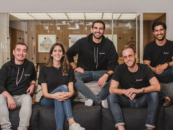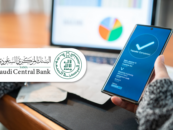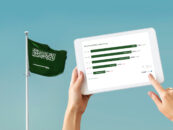Tweeq International Financial Company, a Saudi Arabian business, has been granted a license to operate as a payment fintech company and provide e-wallet services, the Saudi Central Bank (SAMA) announced on November 22, 2022. The approval is the 11th unveiled this year by the regulator and brings the total number of payment companies licensed by SAMA to 23, in addition to the five that have received in-principle approval.
Founded in 2020, Tweeq is building a financial super-app targeting both individuals and small and medium-sized enterprises. The ecosystem will feature a wide range of features and services focusing on personalization and addressing lifestyle needs.
Currently, Tweeq provides spending accounts, debit cards, payment capabilities, personal financial management tools, and bill payments, among other services. The startup closed an undisclosed funding round last year.
Tweeq is the 11th fintech company SAMA has given the regulatory greenlight this year. It joined Smart Digital Payment Company, doing business as Tiqmo; Arab Sea Financial Company; Fatoraah; Enjaz Payments Services Company; Marta Financial Company; Mobily Pay; Lendo; FinZey; Moyasar Financial Company; and Waslah al-Daf’, doing business as Paylink.
Smart Digital Payment Company is the operator of Tiqmo, a mobile payment brand. The company aims to build an ecosystem for digital payments and services in the Middle East and North African (MENA) region, and targets the e-commerce, gaming, logistics and educational sectors.
Arab Sea Financial Company is a subsidiary of publicly traded information technology (IT) provider Arab Sea Information System Company and specializes in digital payments.
Enjaz Payments Services Company is the remittance arm of Bank Albilad, providing international and local money remittance services. In addition to running a wide-reaching physical network, Enjaz also offers a full digital journey for its customers through a mobile app that features with end-to-end digital onboarding and digital wallet opening. Other products and services provided include a payment card and utility bill payments.
Marta Financial Company is a payment aggregator founded in 2018 that provides merchants of all sizes and types with point of sale (POS) devices that allow them to accept different non-cash payments via Visa and Mastercard as well tap-to-phone. The terminal also allows merchants to track their sales records and accept payments in place with no Internet coverage.
Mobily Pay is a subsidiary wholly owned by Etihad Etisalat Company that operates a digital wallet. The Mobily Pay app allows users to conduct their daily financial transactions, shop, pay their bills, send money domestically and abroad, and more. It comes with accompanying virtual payment cards and offers cashback programs.
Lendo is a peer-to-peer (P2P) lending platform founded in 2019 that specializes in SME debt finance. Lendo provides different financial products with an initial focus on invoice financing. The company claims it has financed more than SAR 300 million (US$80 million) to SMEs over the past two years, and returned the investments to investors at a zero percent default rate. Lendo secured a US$7.2 million Series A in March 2021.
FinZey is a personal microfinance company that provides an end-to-end digital lending services. Using the FinZey App, customers can apply for loans, know their eligibility, track their finance approvals, digitally sign their contracts, as well as execute and receive their loans.
Moyasar Financial Company provides electronic payment solutions for merchants and organizations to accept payments in multiple ways, including through popular card networks and mobile wallets.
Waslah al-Daf’ is the operator of Paylink, an app-based invoicing and payment software for businesses. Paylink allows the merchant to send electronic invoices through various channels such as social media applications, emails and SMS. Customers, on the other hand, can pay the merchant using the Paylink payment gateway.
Finally, for Fatoraah, no information could be found online.
These 11 companies join the 12 others that had been approved previously, and the five that have received in-principle approval from SAMA.
In parallel, SAMA has permitted an additional nine fintech companies to join its regulatory sandbox this year, allowing Bwatech, Rabet, Mala’a, Lean Technologies, Mod5r, Wally Global Arabia, Sanam Aliliddikhar for Information Technology, Istishraf Al-Bayanat for Financial Technology, and Spare Arabian Financial Company to provide open banking solutions under the special regime.
A spokesperson for Tarabut Gateway told Fintech News that the Dubai-headquartered company also received approval to operate under the regulatory sandbox in 2022. Tarabut Gateway, a company founded in 2017, is one of the early pioneers in MENA’s open banking scene.
A total of 42 companies have been permitted to operate under the regulatory sandbox so far. 15 of them have graduated by obtaining full authorizations and are now licensed by SAMA.
The licensing of new, innovative fintech companies and the regulatory sandbox come as part of SAMA’s ambition to promote the development of the fintech sector, encourage innovation and increase efficiency in the financial industry.
These initiatives are integral to the Financial Sector Development Program (FSDP) of Saudi Vision 2030, a strategic framework to reduce Saudi Arabia’s dependence on oil, diversify its economy, and develop public service sectors.
Featured image credit: Edited from Unsplash








No Comments so far
Jump into a conversationNo Comments Yet!
You can be the one to start a conversation.